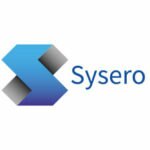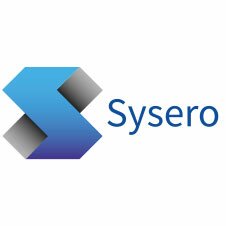Sysero: The hybrid firm is here – How to bring greater agility and flexibility to your firm
The way law firms work has changed in a way that seemed almost impossible just a few years ago. After a year of virtual calls and pyjama days, lawyers and staff are now used to the benefits of home working, forcing many firms to consider a long-term shift towards more agile working practices.
In a survey conducted in June 2020, more than half of lawyers and law firm staff stated they wanted to permanently work from home for most of the week once the pandemic ended. However, even as firms have adjusted to Zoom meetings, e-signatures, and other virtual ways of working, the importance of the office is still very much considered.
So, it’s no surprise that leading firms across the UK are headed toward a hybrid work environment. Last summer, Linklaters announced its new global “agile working policy” that allows employees to work remotely up to 50% of the time, and many other UK firms have since followed suit.
While this new hybrid way of working makes it more challenging to realise the benefits of office-based work methods – such as face-to-face meetings and impromptu discussions – it also provides a unique opportunity to reimagine the legal delivery model. Efficiency, productivity and profitability has been a key focus for firms over the past several years, and now they finally have the chance to change the way they work to unlock these advantages.
By investing in the right technology and processes, law firms can enable their staff to work more effectively to deliver consistently high quality work, unencumbered by location. However, when moving towards a hybrid office, there are several key elements to consider.
Adapting to the Hybrid Firm
The key to a successful hybrid working model is mobility and scalability. As lawyers and staff work from disparate locations, they still need to be able to access the firm’s critical information, data and documents. At the same time, the ability to quickly scale up at a moment’s notice has become a defining factor in business resiliency.
To adapt to a successful hybrid model means adopting cloud technologies. Cloud-based tools provide the key to enabling greater flexibility, accessibility, and scalability. For example, cloud-based applications like workflow automation can provide lawyers and staff with on-demand access to critical documents and processes – no matter where they are working. Client onboarding, contract management, and document generation are all business-critical processes that can be simplified through workflow automation and made available in the cloud.
Delivering On-Demand Legal Services
Law firms and their staff aren’t the only ones moving to a hybrid office – so are their clients. With the right approach, firms can extend the benefits of better processes and technology directly to their clients to improve service delivery.
One of the main ways that modern firms are empowering clients in a hybrid world is through self-service legal portals. These cloud-based portals provide clients with on-demand access to frequently requested legal documents, which are entirely managed by the firm. Clients simply access the firm’s portal, find the relevant document template, and complete it themselves by following a guided online form.
By improving access to firm-managed documents and making transactional work available in the cloud, firms are able to provide enhanced service delivery – whilst creating differentiation in a hybrid world.
Demonstrate Compliance and Security
Client confidentiality, regulatory compliance and data security remain a top priority for firms. It’s worth noting that the EU GDPR is still relevant for UK firms that operate in Europe or hold information on EU nationals, and UK-based firms are still required to comply with the UK’s data protection laws. Yet, a hybrid work environment can make ensuring compliance and security more challenging.
On the other hand, having the right technology in place can actually improve a firm’s ability to demonstrate compliance and security in a hybrid office. Take for example, how Sysero’s workflow automation tool enables firms to create a standardised – and enforceable – framework for compliance that embeds risk management into the firm’s business-critical processes. This helps mitigate the risk of human error and ensure compliant practices are followed, even when people are working away from the office.
When it comes to data security, Sysero’s workflow automation tool immediately encrypts client data as it’s entered into a contact form or knowledge system. This data can then be pseudonymised to further safeguard data and mitigate risk in case of a data breach.
How Firms Work Has Changed Forever
While hybrid working existed pre-pandemic, it’s now become the cornerstone of modern working. The hybrid firm is here – and now’s the time to make the transition. If your firm is looking to accelerate its transformation, get in touch with our team to discuss your options.



